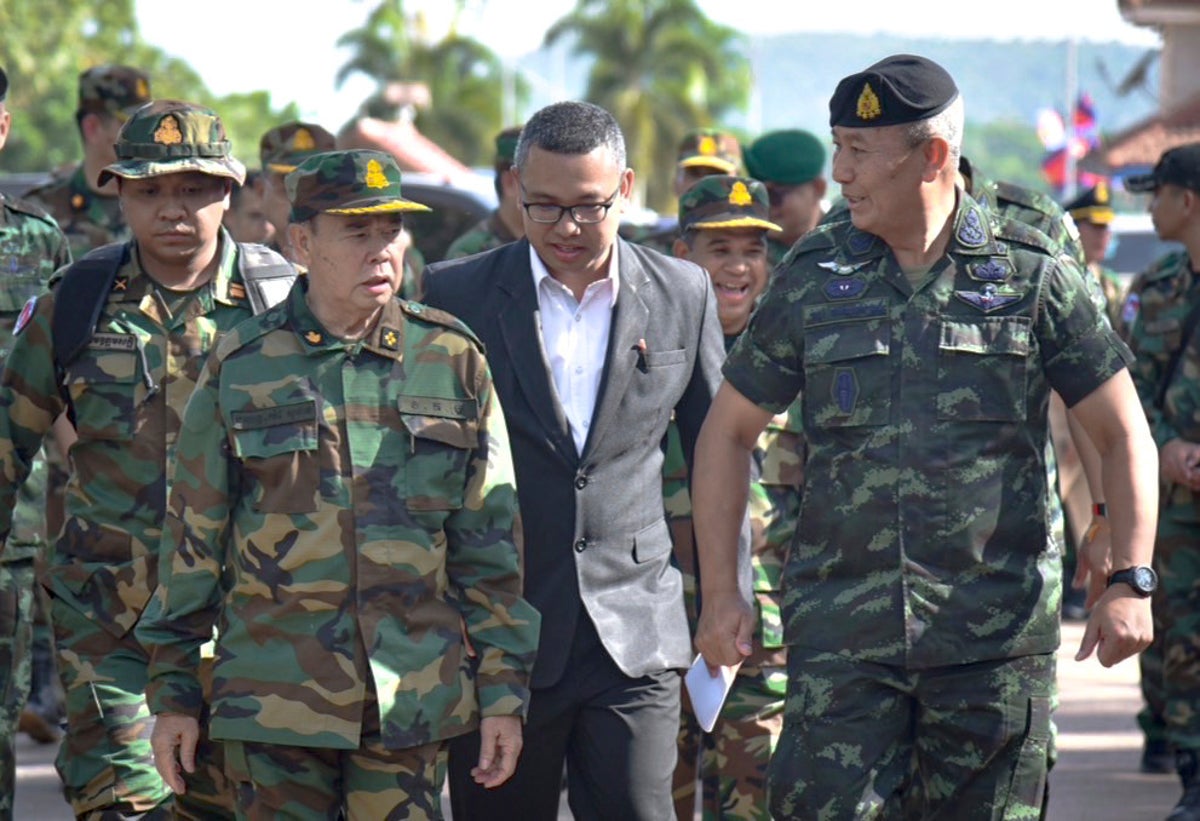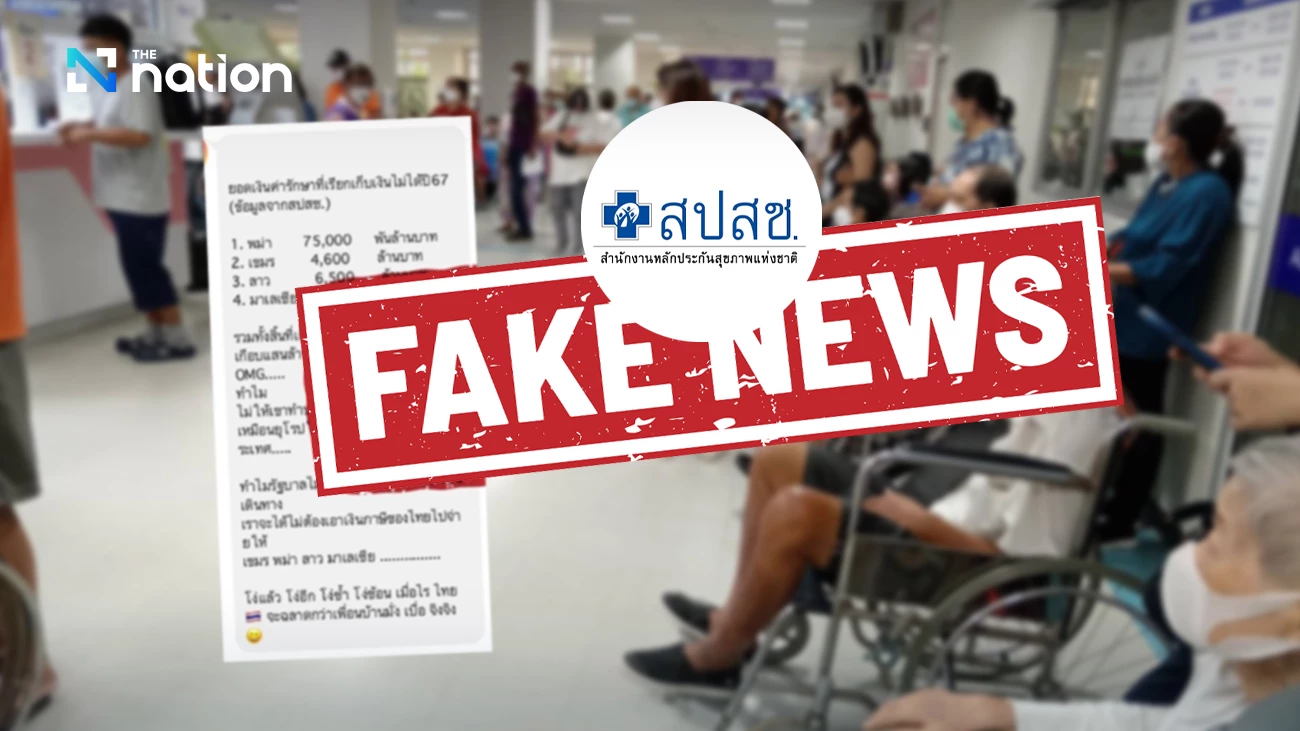Border Blazes: Thailand & Cambodia's Fiery Standoff Ignites Fears, Sparks ICC Threats

The relationship between Thailand and Cambodia remains strained by persistent border disputes, allegations, and misinformation, despite ongoing diplomatic efforts and a ceasefire agreement. Recent claims by Cambodia's Minister of Information, citing foreign intelligence, alleged that Thailand was planning to assassinate Cambodian leaders Hun Sen and Hun Manet.
These accusations were firmly rejected by Nikorndej Balankura, Director-General of the Department of Information and Spokesperson for the Thai Ministry of Foreign Affairs, who called them unfounded and defaming, asserting that such false news undermines constructive dialogue and peaceful conflict resolution.
Amidst these tensions, the Thai-Cambodian border conflict has also been a hotbed for disinformation. The Ministry of Digital Economy and Society (DES) reported that eight out of the top ten fake news items in a recent week were related to the border conflict, with the top three specifically concerning the situation. This prevalence of false reports highlights the challenge of maintaining accurate information during the dispute.

Photo Credit: The Independent
Further exacerbating the situation are allegations of ceasefire violations and the use of landmines. The Royal Thai Army (RTA) was tasked to lead the ASEAN Interim Observation Team (IOT)to the Thai-Cambodian border to monitor alleged breaches of international law by Cambodian troops.
These visits followed previous trips organized by the Thai government for international bodies. Envoys from ASEAN and countries that ratified the Ottawa Convention—which bans anti-personnel mines—visited Si Sa Ket province, where they reportedly witnessed evidence of landmines allegedly laid by Cambodian forces and interviewed affected residents. The International Committee of the Red Cross (ICRC) also assessed the humanitarian impact of cross-border attacks on civilians in Surin, Si Sa Ket, and Ubon Ratchathani provinces, gathering facts for a confidential report to both governments, underscoring Thailand's commitment to humanitarian protection.
A significant point of contention is the Ban Nong Chan village in Sa Kaeo province. Thai government spokesman Jirayu Houngsub stated that Cambodians had betrayed Thai hospitality by establishing a community on Thai soil. Historically, Ban Nong Chan served as a temporary shelter for Cambodians fleeing civil war in 1977. Thailand claims that Cambodia later exploited this humanitarian aid to encroach on Thai territory, with refugees refusing to return and expanding their settlements, now comprising nearly 200 homes.
The Cambodian government rejects Thailand’s border demarcation claims and has pressured Thailand to dismantle barbed wire fences in the area, which Thailand insists were erected within its boundaries to protect against further encroachment and attacks by Cambodian troops, including landmine deployment.
The severity of the conflict has even led to discussions of legal action. Acting Prime Minister Phumtham Wechayachai indicated that academics might propose suing Cambodian Prime Minister Hun Manet and his father, Hun Sen, in the International Criminal Court (ICC) as war criminals. This consideration stems from a National Security Council (NSC) resolution to file both criminal and civil lawsuits in Thai courts against the Cambodian leaders for causing deaths, injuries, and property damage to Thais through military orders.

Photo Credit: Bloomberg.com
Phumtham also met with US lawmakers who visited Thailand to observe regional developments, discussing Thai-US relations, security concerns, and the border conflict. He emphasized the need for truth over propaganda and peaceful solutions, raising the issue of Cambodian mine-laying activities with the delegation. While acknowleding the complexity of border disputes, Phumtham stressed that the priority was addressing Cambodia’s alleged landmine deployment and the issue of barbed-wire fences, deferring discussions on existing Memoranda of Understanding.
Despite a 13-point ceasefire agreement signed during the General Border Committee (GBC) meeting in Malaysia, provocations and intimidation persist. Thailand continues to stress the importance of fighting with truth to resolve issues, emphasizing that only transparent and factual dialogue can lead to a lasting peace, rather than information warfare that stirs hatred between the two nations.
Recommended Articles
Escalating Fury: Thailand Accuses Cambodia of 'War Propaganda' Amidst Tense Border Standoff

Thailand and Cambodia are embroiled in heightened border tensions, marked by Thailand's rejection of alleged assassinati...
Southeast Asian Tensions Soar: Thailand and Cambodia Clash Over Border, Leaders Face ICC Threats

Thailand is actively addressing ongoing border tensions with Cambodia, rejecting assassination claims and confronting al...
Border Fury: Thai-Cambodian Tensions Mount Amid Assassination Plot Denials and Legal Threats

The Thai-Cambodian border remains a hotspot of diplomatic tensions, characterized by rejected assassination claims, disp...
Thai-Cambodian Border Crisis Escalates Amidst Legal Threats and Diplomatic Tensions

Thailand has vehemently denied allegations of plotting to assassinate Cambodian leaders, amidst escalating tensions alon...
Explosive Border Crisis: Thailand and Cambodia Locked in Tense Standoff Amid Assassination Rumors and Land Disputes

Persistent tensions and accusations continue to plague the Thai-Cambodian border, fueled by disputes over land, alleged ...
You may also like...
Super Eagles Converge in Uyo as Crucial World Cup Qualifiers Against Rwanda & South Africa Loom!
)
The Super Eagles have opened their camp in Uyo, with key players arriving for critical 2026 FIFA World Cup qualifiers ag...
Nigeria's Super Falcons Reign Supreme, Clinching 10th WAFCON Title Amidst Fanfare!
)
The Super Falcons of Nigeria clinched their record-extending 10th Women's Africa Cup of Nations (WAFCON) title with a dr...
Cumberbatch & Colman Ignite 'The Roses': Critics Raving About Hilarious, Heartbreaking Divorce Comedy

Jay Roach's new dark comedy "The Roses," starring Olivia Colman and Benedict Cumberbatch, explores the modern dissolutio...
Dwayne 'The Rock' Johnson's Emotional Triumph: 'The Smashing Machine' Stuns Venice, Ignites Oscar Buzz

Benny Safdie's "The Smashing Machine" features Dwayne Johnson in a critically acclaimed, transformative role as MMA figh...
Afrobeats Dominance: Burna Boy, Davido Lead AFRIMA 2025 Nominations

The 2025 All Africa Music Awards (AFRIMA) nominations have been announced, featuring a record-breaking 10,717 entries an...
Live Aid: The Controversial Legacy of the Biggest Charity Concert

Live Aid, the historic 1985 bicontinental concert, was a monumental effort to combat the Ethiopian famine, raising milli...
Bianca Censori's Bold & Unfiltered Persona: Nude Photos & Kanye's Power Play

Bianca Censori's controversial fashion choices and public appearances with husband Kanye West continue to draw headlines...
The Power Couple's Next Chapter: Taylor Swift & Travis Kelce's Wedding Bells Ring Loud!

Pop superstar Taylor Swift and NFL tight end Travis Kelce have officially announced their engagement, confirming their j...